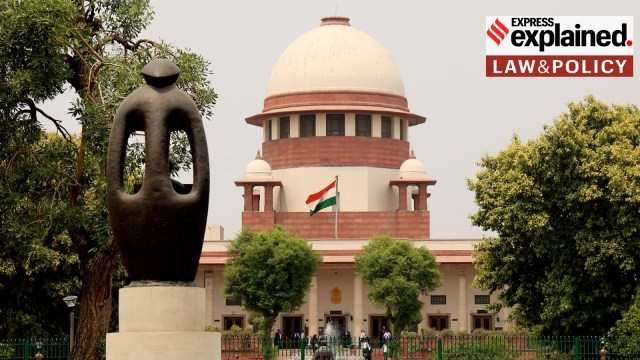Ad Hoc High Court Judges

- 24 Jan 2025
In News:
To address the mounting pendency of criminal cases in several High Courts, the Supreme Court of India has suggested invoking Article 224A of the Constitution, which allows the appointment of retired High Court judges on an ad hoc basis.
Constitutional Provision: Article 224A
- Title: Appointment of Retired Judges at Sittings of High Courts.
- Key Provision: The Chief Justice of a High Court, with the consent of the President, may invite retired judges of the same or other High Courts to act as judges temporarily.
- Status: These judges enjoy the powers, jurisdiction, and privileges of regular High Court judges, but are not deemed permanent judges.
Why the Provision is Being Invoked Now:
- Backlog of Cases: Over 40% vacancy rate in High Courts; huge pendency, especially of criminal cases.
- Delays in Regular Appointments: Slow process of regular judicial appointments prompted the Supreme Court to consider alternative mechanisms.
- Underuse of Article 224A: Only three recorded instances of ad hoc appointments since Independence:
- Justice Suraj Bhan – MP High Court (1972)
- Justice P. Venugopal – Madras High Court (1982–83)
- Justice O.P. Srivastava – Allahabad High Court (2007, Ayodhya case)
Judicial Interpretation – Lok Prahari v. Union of India (2021):
- The Supreme Court laid down guidelines for invoking Article 224A.
- The process must be routed through the SC collegium (CJI + 2 senior-most judges).
- Trigger Point for Appointment:
- High Court vacancies exceed 20% of sanctioned strength (excluding pending proposals).
- More than 10% of pending cases are over 5 years old.
Procedure for Appointment:
- Consent: Retired judge must agree to serve again.
- Initiation: Chief Justice of the High Court forwards the name.
- State and Centre: Proposal routed through State CM → Union Law Ministry.
- SC Collegium: Must review and approve the name.
- Executive Clearance: Law Ministry → PM → President for final approval.
Term & Allowances:
- Duration: Typically 2–3 years, renewable if required.
- Number of Judges: Suggested 2–5 ad hoc judges per High Court.
- Remuneration: Entitled to allowances as per Presidential order.
- Status: Have full judicial powers during tenure.
Concerns & Safeguards:
- Fear of using ad hoc appointments as a substitute for regular appointments.
- Therefore, SC mandates that regular appointment process must be underway before invoking Article 224A.
- Periodic review and panel creation of eligible retired judges recommended.
